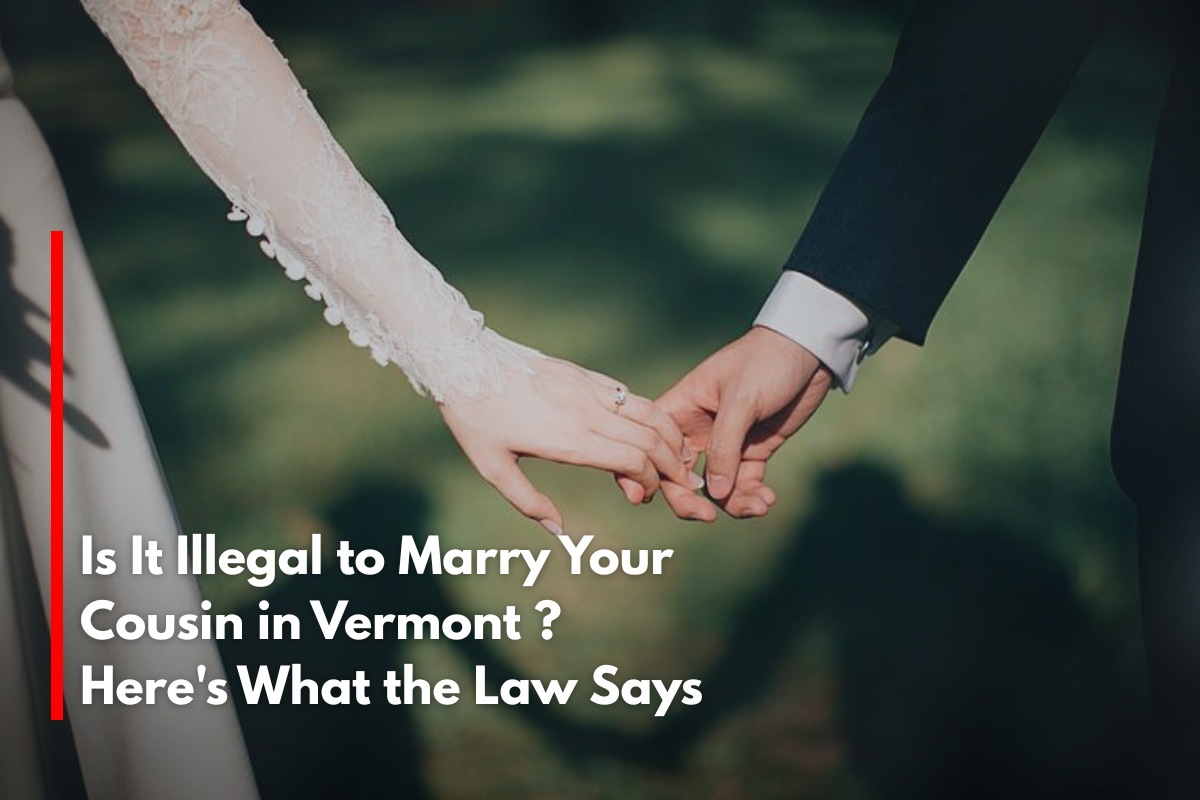In Vermont, it is legal to marry your first cousin. The state’s marriage laws specifically prohibit marriage between immediate family members such as parents, grandparents, children, siblings, siblings’ children, and parents’ siblings, but they do not mention first cousins as prohibited relatives. As a result, couples who are first cousins can legally marry in Vermont without restrictions.
Details From Vermont Statutes
According to Vermont Statutes Title 15, Chapter 001, Section 1a:
“No person shall marry his or her parent, grandparent, child, grandchild, sibling, sibling’s child, or parent’s sibling.”
Noticeably missing from this list are cousins, indicating that cousin marriages, including first cousins, are allowed in the state.
Application Process and Residency Requirements
Couples wishing to marry—whether cousins or not—must apply for a marriage license at the town or city clerk’s office in Vermont. The license is valid statewide, so the marriage ceremony can take place in any county regardless of where the license was obtained.
There are no residency requirements for applicants, meaning either or both cousins do not need to be residents of Vermont to apply for a marriage license in the state. This openness has made Vermont a destination for some couples from states where cousin marriage is prohibited.
Cousin Marriage in the Context of New England
Vermont is one of the few New England states that permit first cousin marriage. Most New England states, including Massachusetts, Rhode Island, and Maine, allow it under certain conditions or without specific restrictions, except New Hampshire, where it is illegal.
Cultural and Legal Considerations
While Vermont legally allows cousin marriages, it is important to recognize that cultural attitudes vary widely on these relationships. Some communities may hold traditional or religious reservations about cousin marriages, but legally, Vermont respects the autonomy of individuals to marry their cousins.
Couples planning a religious ceremony, especially in the Roman Catholic Church, may encounter additional requirements, such as dispensations or special permissions. The Catholic Church historically has restrictions on cousin marriages but has relaxed some rules in recent years.
Recognition in Other States
It is vital to consider that although Vermont permits cousin marriage, other states may not legally recognize such unions. Couples who marry in Vermont but plan to move to or reside permanently in a state where cousin marriage is banned should understand the potential legal implications, especially regarding marital status recognition.
Summary: What You Should Know
Vermont allows marriage between first cousins without restrictions.
Close relatives such as siblings, parents, or grandparents are prohibited from marrying.
Marriage licenses are available regardless of residency and valid statewide.
Cousin marriages performed in Vermont may not be recognized in all other states.
Couples should also consider religious or cultural factors in their marriage plans.
Marrying your cousin is fully legal in Vermont, making the state one of the more permissive jurisdictions in the U.S. regarding cousin unions. Couples interested in marrying in Vermont should review local laws, plan the license application, and understand how their marriage will be viewed in other states where they might live.
Sources
(https://wokq.com/is-it-illegal-to-marry-your-first-cousin-in-new-england/)
(https://en.wikipedia.org/wiki/Cousin_marriage_law_in_the_United_States)
(https://legislature.vermont.gov/statutes/section/15/001/00001a)
(https://shellesimonlaw.com/first-cousin-marriage-under-us-immigration-law/)
(https://dataminingdna.com/can-first-cousins-marry-in-vermont/)
(https://www.yeklaw.com/blog/2024/july/immigration-and-marriage-between-cousins/)











